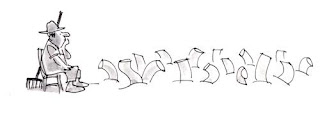Nicole Brossard
Sous la langue Under Tongue
Fricatelle ruisselle essentielle aime-t-elle le long de son corps la morsure, le bruit des vagues, aime-t-elle l'état du monde dans la flambée des chairs pendant que les secondes s'écoulent cyprine, lutine, marines.
In the translation by Susanne de Lobtinière-Harwood
Does she frictional she fluvial she essential does she all along her body love the bite, the sound waves, does she love the state of the world in the blaze of flesh to flesh as seconds flow by silken salty cyprin.
In the 1987 publication, under the dual imprint of L'Essentielle and Gynergy, the translator provides a note to the choice of the word
cyprin: "Female sexual secretion. From the French
cyprine [fr. Gk Cyprus, birth place of Aphrodite]. We are proposing
cyprin for English usage."
There is an earlier translation of this text appearing in
Writing 16 (1986) under the title "Sa Main Qui Prenait Appui Sur Un Livre Pendant Que Nos Corps A l'Oblique". There we learn that
Nicole Brossard wrote this text for the erotic festival held at Theatre Expérimental des Femmes (now known as Espace Go) in Montréal the week of March 8, 1986. It was a glittering Saturday evening; 15 writers' texts were read/performed by 15 actresses.
And our trio appears as "silken salty spritely". This last capturing "lutines" marvellously well. I appreciate the alliteration which captures the rhythm supplied in French by the rhymes. And it is alliteration that is carried over into the 1987 version.
In
Writing 16 Susanne de Lobtinière-Harwood provides a note on
fricatelle (missing in the 1987 version)
fricatelle — from fricarelle, the rubbing together of women's thighs. Thirties slang for lesbian, Nicole explains, via Marie-Jo Bonnet, Un choix sans équivoque, and Nicolas Blondeau, Le Dictionnaire Érotique Latin-Français. Blondeau's dictionary was written in the 17th century but not published until the 19th century.
The rub of language. The spark of neologism.
And so for day 2293
24.03.2013
 If you caught the image (by James Stevenson) of the antiquated hardware and noticed the slot, the poem's ending comes as a pleasing confirmation of the mischief that caused the chaos.
If you caught the image (by James Stevenson) of the antiquated hardware and noticed the slot, the poem's ending comes as a pleasing confirmation of the mischief that caused the chaos.

